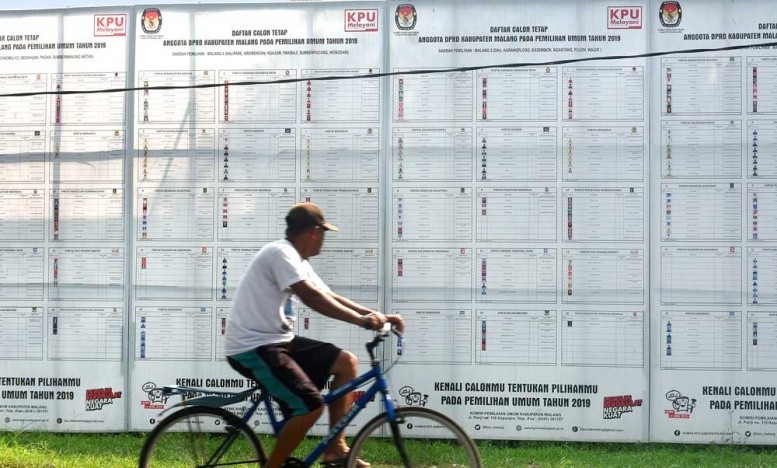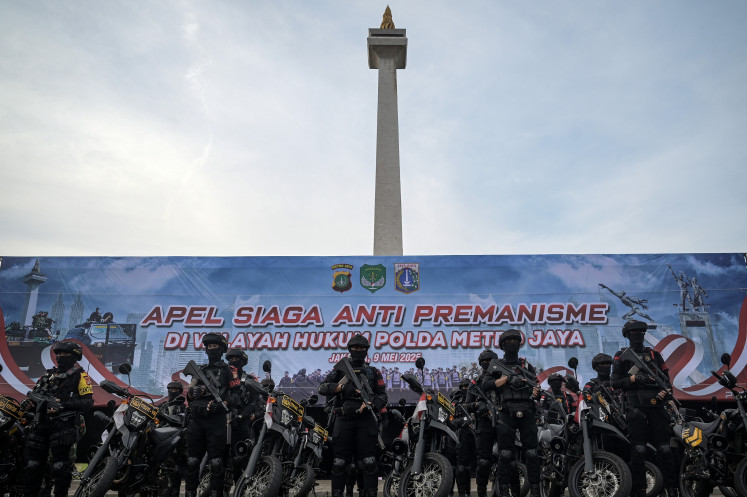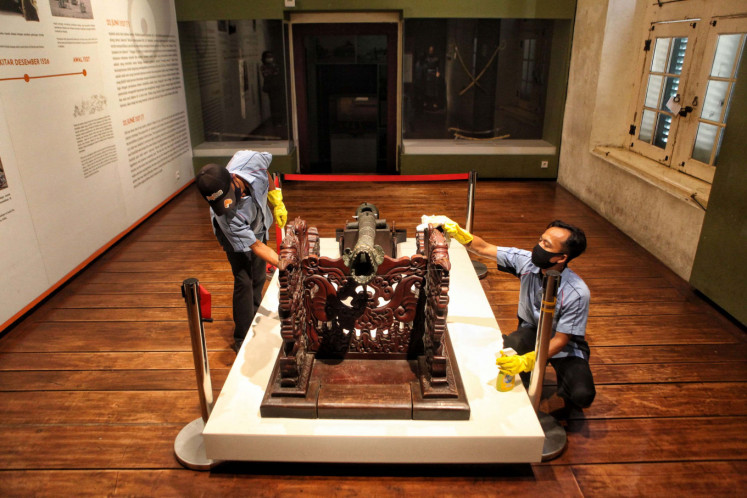Political dynasties, graft leniency loom over 2024 elections
With relatives of sitting lawmakers, political leaders and regional heads, along with former graft convicts, vying for seats in national and local legislatures next year, observers are concerned that Indonesia's democracy is shifting toward political dynasties and a disregard for antigraft values.
Change text size
Gift Premium Articles
to Anyone

With relatives of sitting lawmakers, political leaders and regional heads, along with at least three dozen former graft convicts, vying for seats in national and local legislatures next year, observers are concerned that Indonesia's democracy is shifting toward political dynasties and a disregard for antigraft values.
According to a report from Tempo done in collaboration with antigraft activist group Indonesia Corruption Watch (ICW), at least 150 politicians on the General Elections Commission’s (KPU) provisional list of nominees have a kinship with current House members, incumbent or former regional heads as well as political party leaders.
They include Diah “Pinka” Hapsari, the daughter of the House of Representatives speaker Puan Maharani and the granddaughter of the Indonesian Democratic Party of Struggle (PDI-P) chairwoman Megawati Soekarnoputri. The PDI-P is also nominating Giri Ramanda Kiemas and Puti Guntur Soekarno, who are Megawati’s nephew and niece.
Giri currently sits on the South Sumatra Legislative Council, while Puti is an incumbent House member. Pinka, on the other hand, has no prior experience in politics.
Political party chairs Airlangga Hartarto of the Golkar Party, Surya Paloh of the NasDem Party, Zulkifli Hasan of the National Mandate Party (PAN), Yusril Ihza Mahendra of the Crescent Star Party (PBB) and Hary Tanoesoedibjo of Perindo, as well as Democratic Party founder Susilo Bambang Yudhoyono, also nominated their children – some of whom are incumbent House members.

Meanwhile, family members of regional leaders who have joined the fray include the sister-in-law, daughter-in-law and brother of former Banten governor Atut Choisiyah, whose family has long held a stronghold over the province. All three will be running on Golkar’s ticket.
Outgoing West Java Governor Ridwan Kamil of Golkar and his predecessor Ahmad Heryawan of the Prosperous Justice Party (PKS) and Bogor Mayor Bima Arya of PAN will also see their wives vying for a spot at the House.
Other family members of political elites joining the race include Titiek Soeharto, the daughter of the late president Soeharto and former wife to Gerindra Party chair Prabowo Subianto, who will contest on Gerindra’s ticket.
Political dynasties?
While it is not illegal for family members of lawmakers, party chairs and regional heads to contest the legislative elections, political analyst Firman Noor said it was indicative of political parties’ inability to develop a meritocracy-based regeneration.
“If a party had spent enough time and effort in mentoring and recruiting members properly, they would not need to resort [to nominating family members], particularly those without a proven track record,” he told The Jakarta Post on Wednesday.
The trend of nominating family members who are still novices in politics or public administration, Firman went on to say, has compounded concerns of political dynasties forming in the country, which would then lead to incapable people, who rely only on their family ties, being elected into positions of power.
The trend of nominating family members as legislative candidates comes as people grow dissatisfied with the House and political parties. A July survey from pollster Indikator Politik Indonesia found that the House and parties held the least amount of public trust when compared with seven other institutions.
Ex-graft convicts
Election watchdogs have also raised their concerns over the seeming lack of commitment from political parties in upholding anticorruption values following a report released by the ICW last week that found there were at least 39 former graft convicts on the KPU’s provisional list.
A prevailing KPU regulation in force for the upcoming polls allows for former graft convicts to run so long as their sentence has ended at least five years before their political parties sign them up as legislative candidates.
Former graft convicts who had their rights to run for public office temporarily stripped by courts, meanwhile, are only allowed to register as candidates once their political rights have been returned.
“The fact that ex-graft convicts are being nominated for next year’s elections shows that political parties are permissive of their track record,” Khoirunisa Agustyati of the Association for Elections and Democracy (Perludem) said on Sunday.
“This means that parties are willing to nominate anyone, without evaluating whether or not [these candidates] have antigraft commitments,” she added.
It remains unclear, however, whether names in the ICW report are eligible to run.
The KPU is currently assessing the eligibility of all registered legislative candidates and will announce the results next month.









